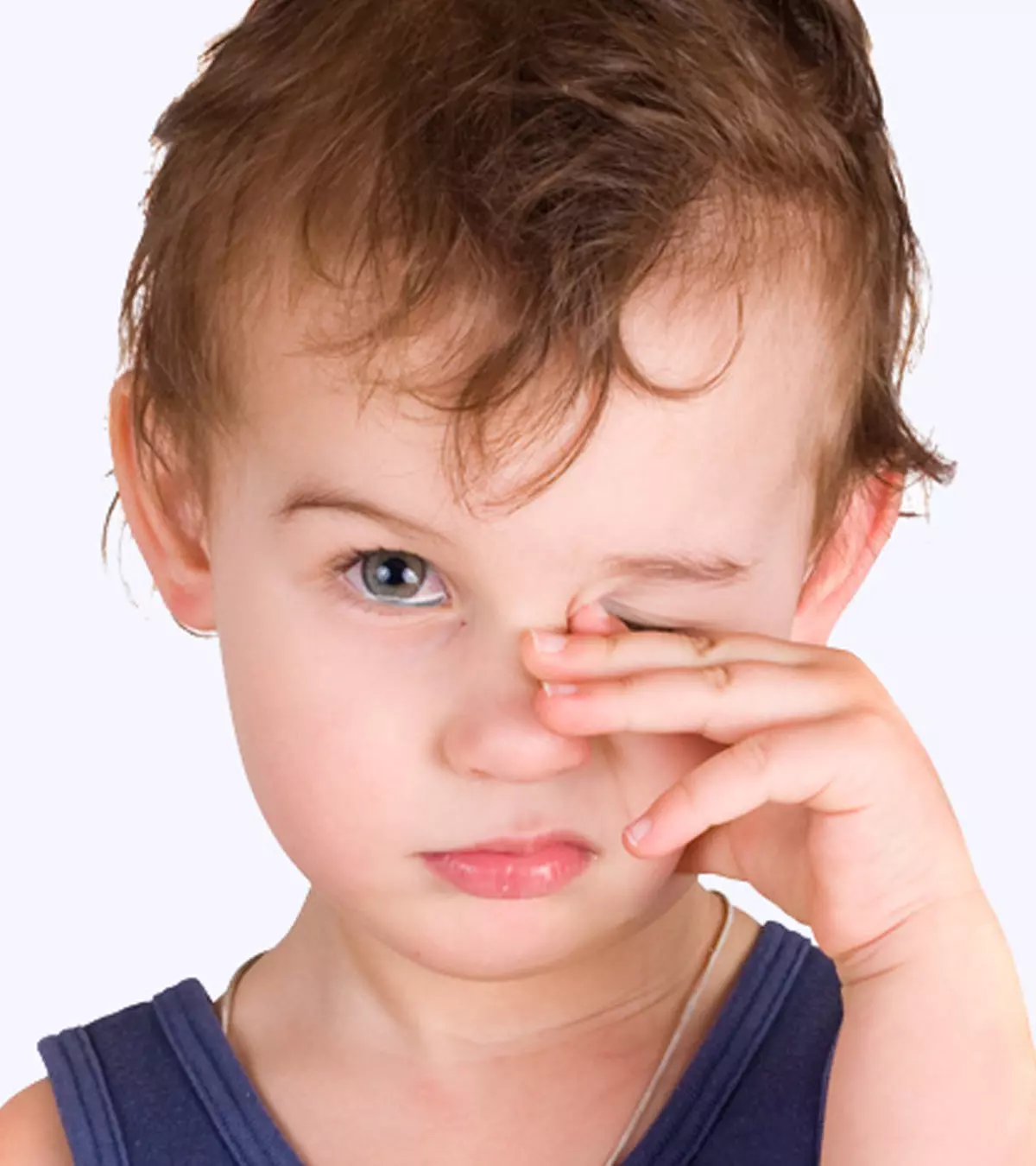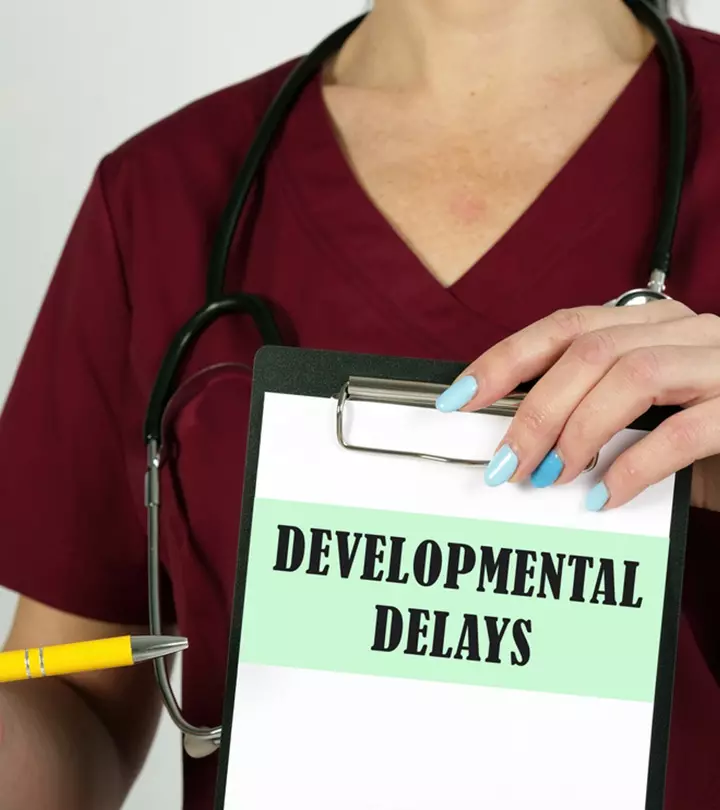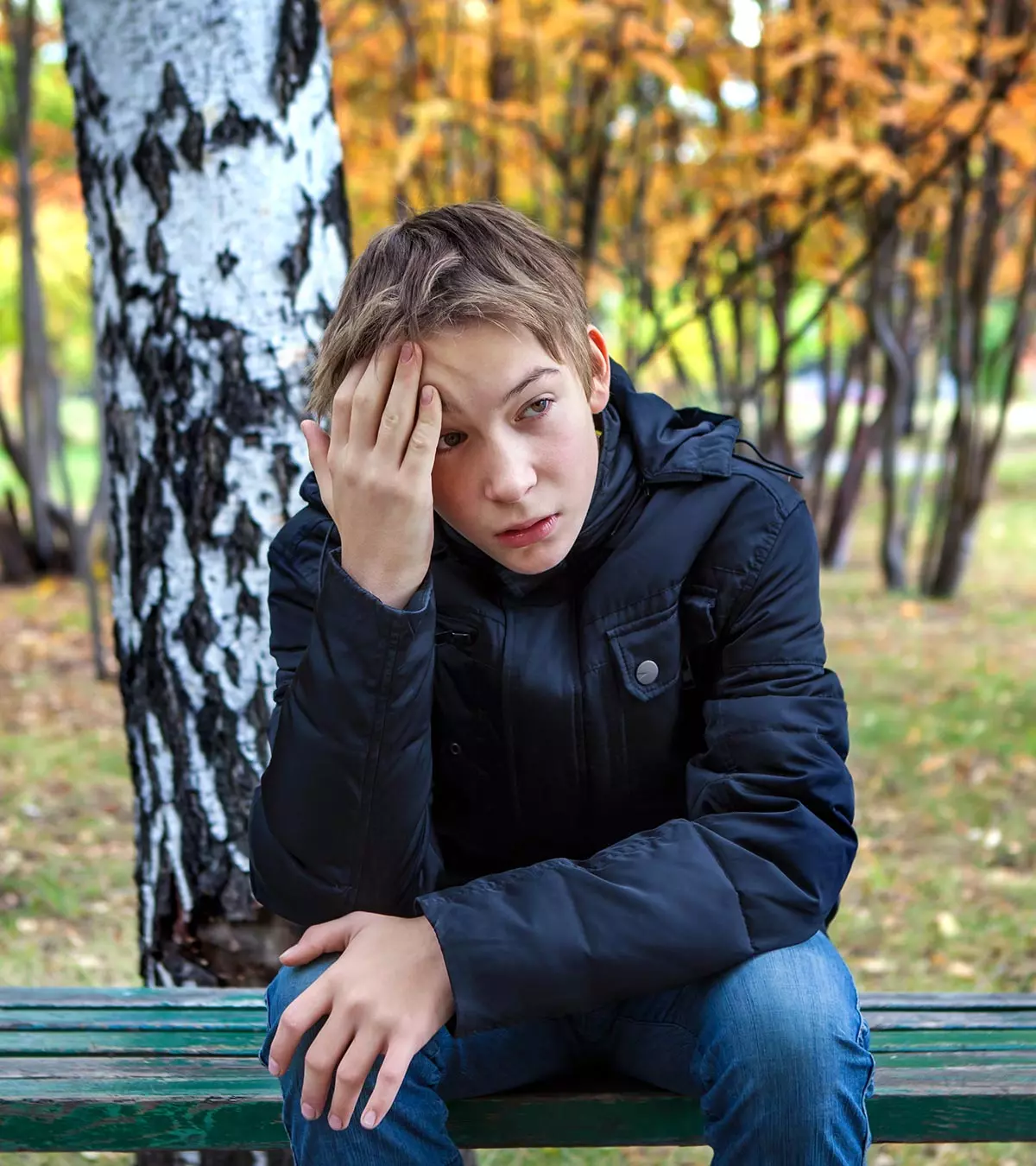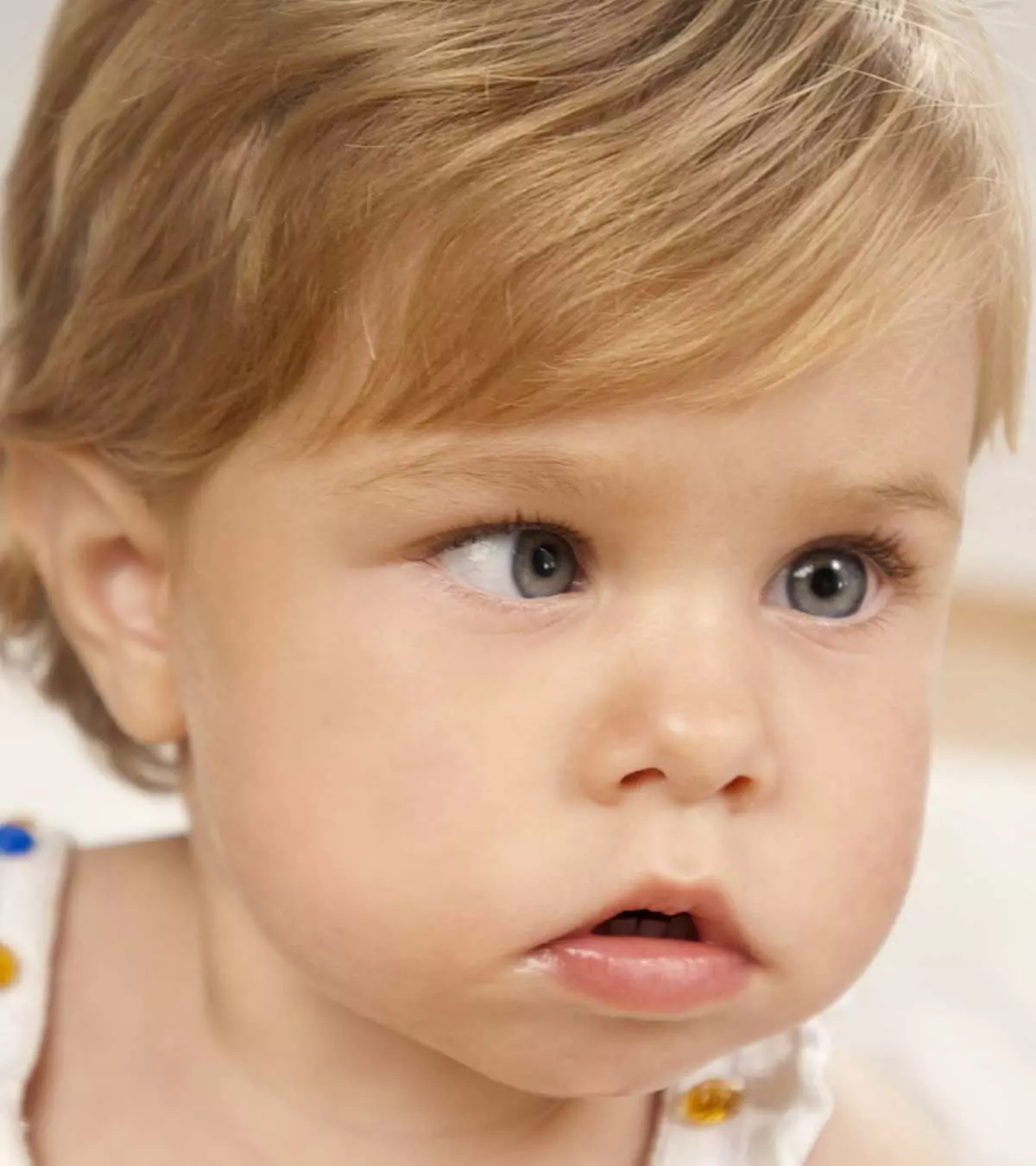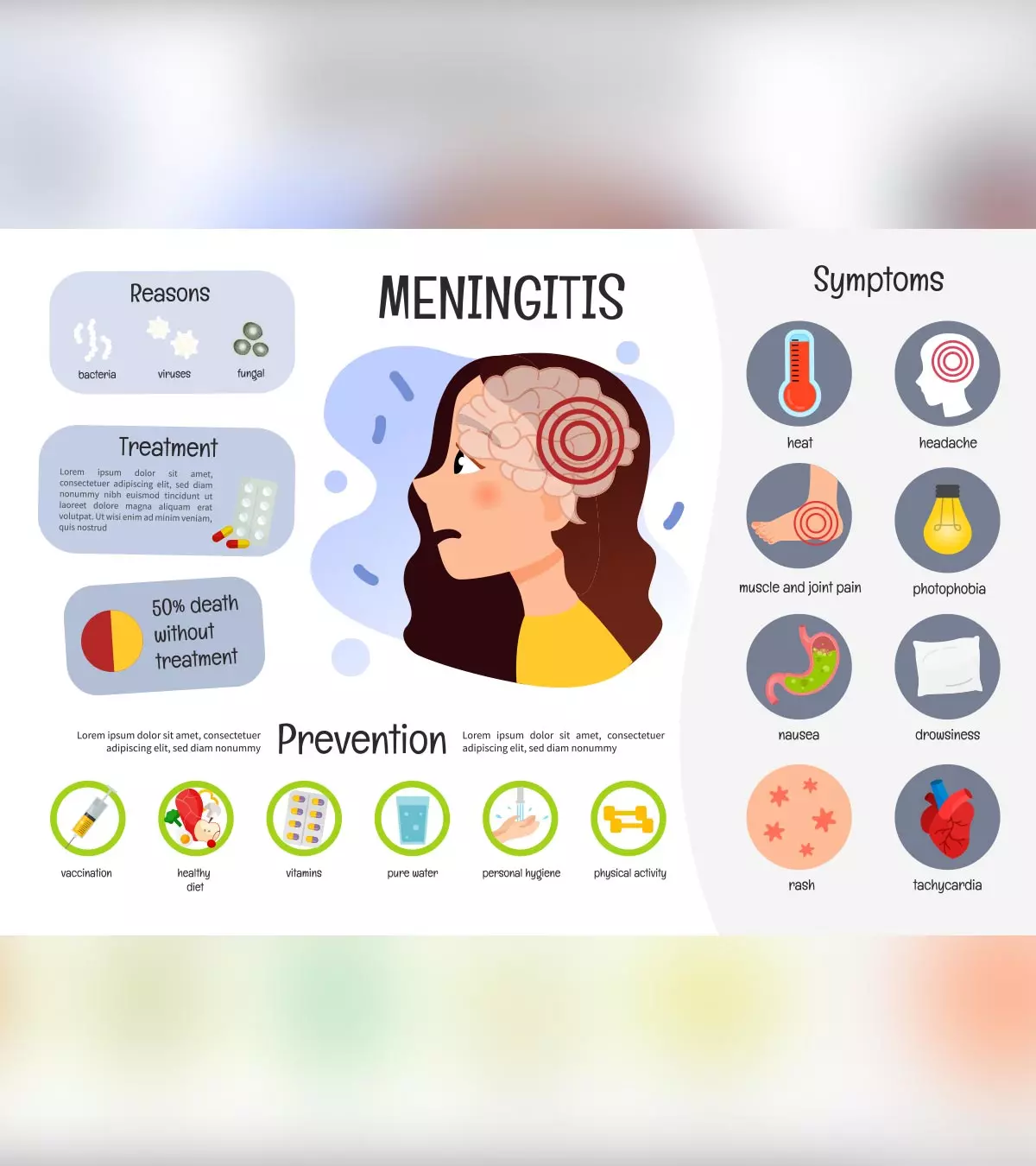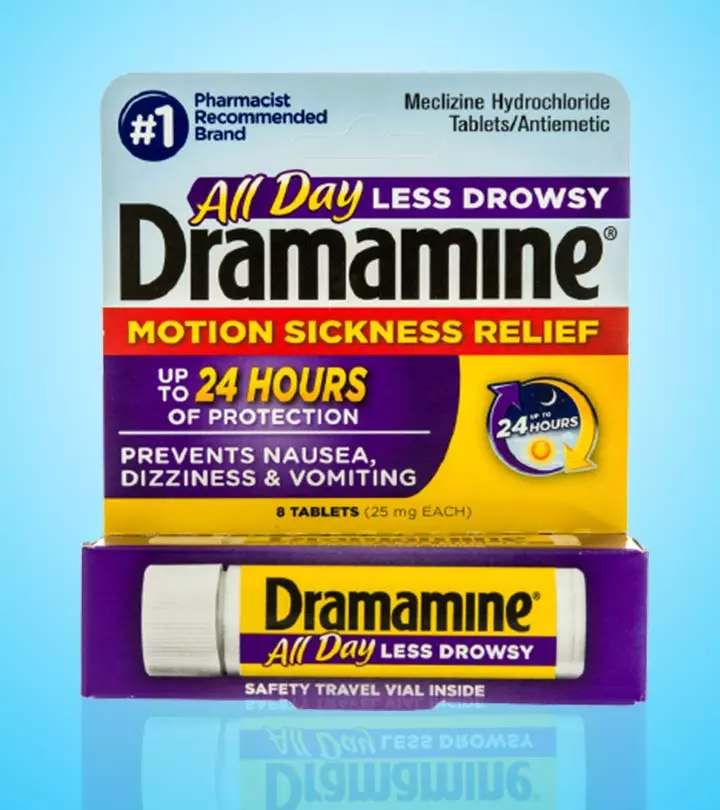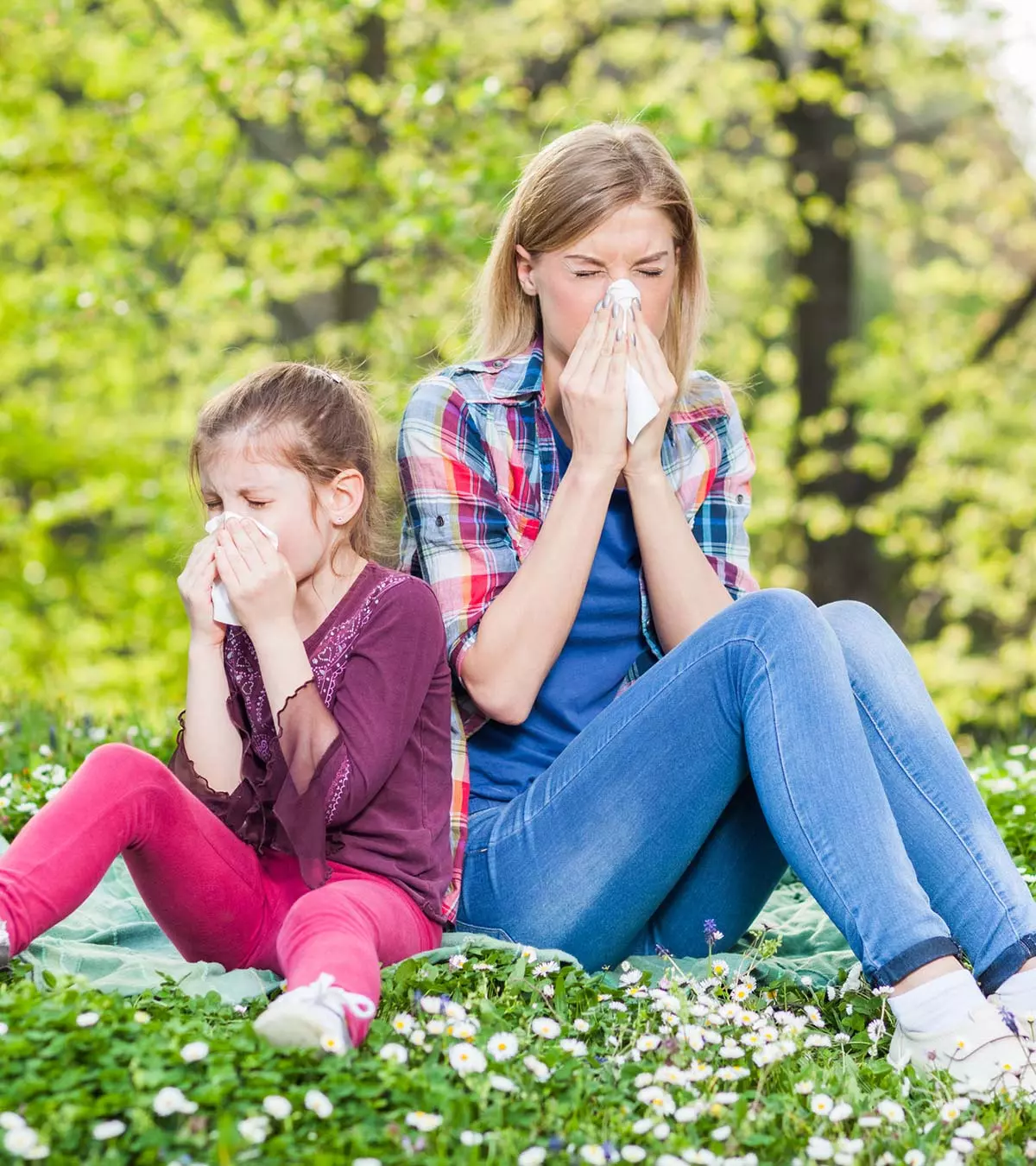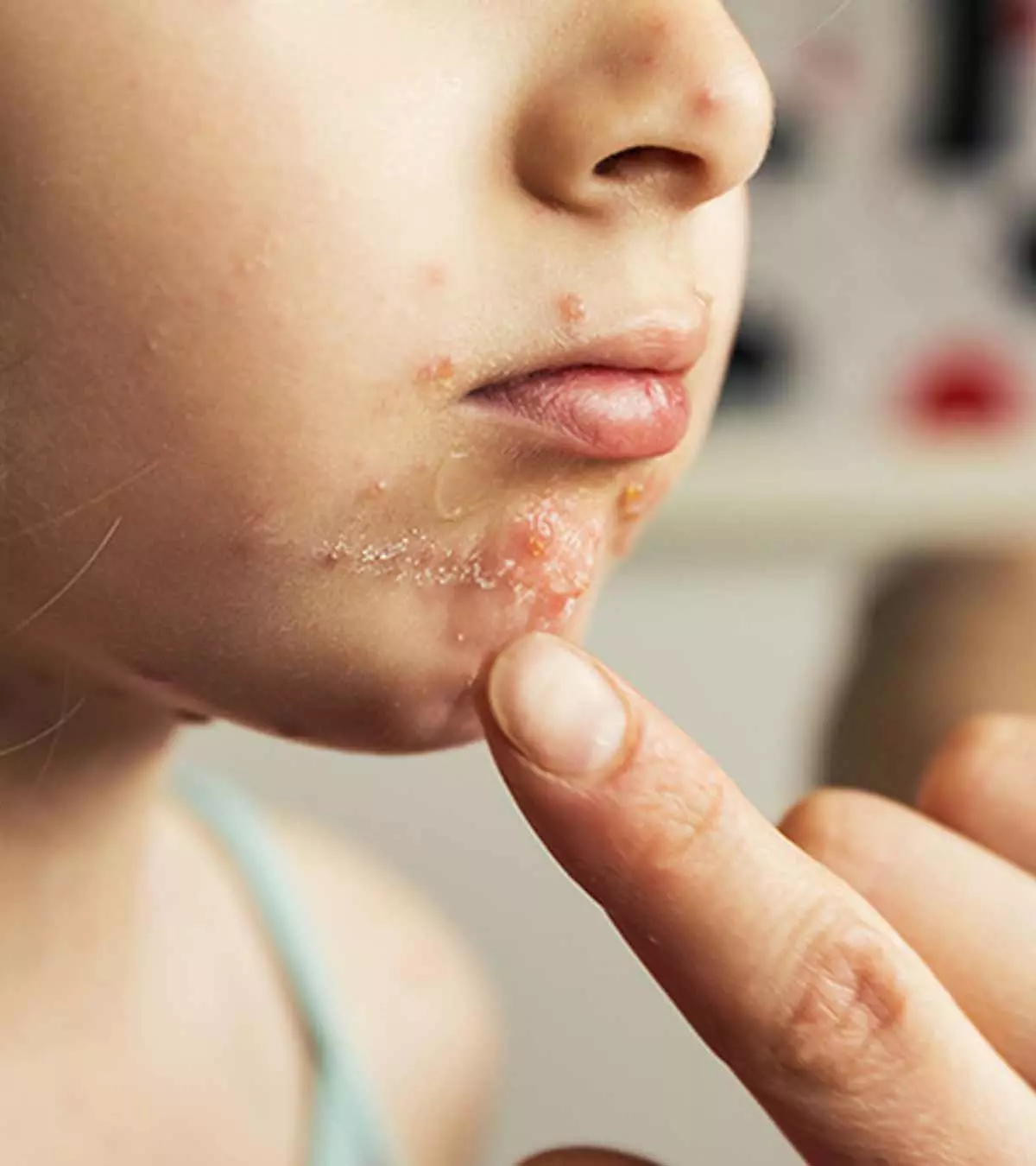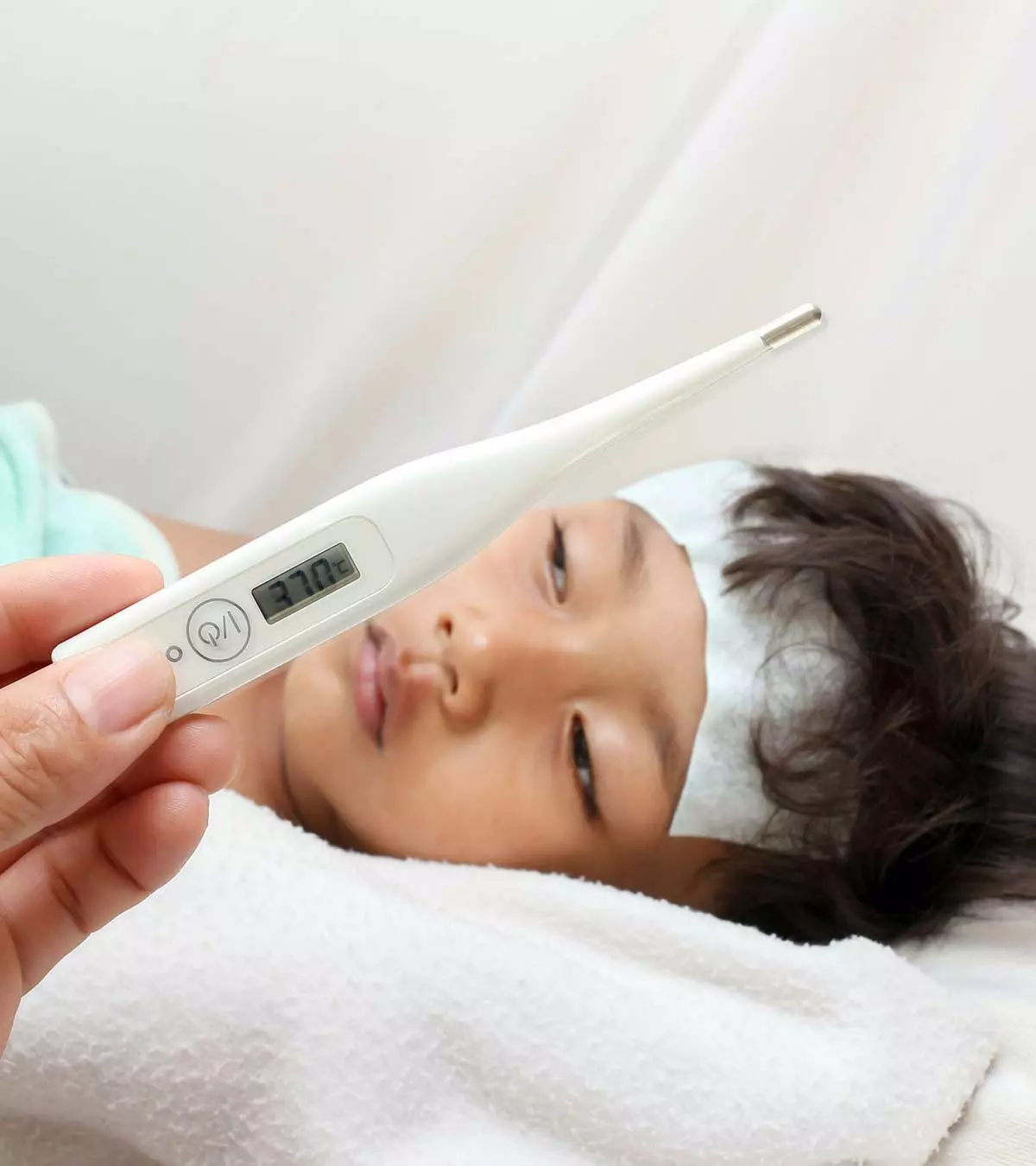
Image: ShutterStock
Dengue fever in children is pretty common. It is a vector-borne disease caused by the dengue virus (DENV) that spreads through infected mosquitoes and is commonly seen in tropical and subtropical areas. Females of Aedes aegypti mosquitoes are responsible for the transmission of dengue among humans. There are four types of dengue virus, so a child can get infections with a different type than before. There is no specific cure, and the disease is managed with symptomatic and supportive treatments. Doctors may recommend home treatment for mild dengue. Severe dengue requires hospitalization due to the increased risk for serious complications (1). Read on to know the cause, symptoms, diagnosis, treatment, and prevention of dengue in children.
Key Pointers
- Dengue fever can be transmitted through bites from infected female Aedes aegypti mosquitoes.
- Children below the age of two and those with weakened immune systems are at a higher risk of contracting dengue fever.
- Symptoms of dengue fever in children include high fever, headache, skin rash, swollen glands, joint pain, and pain behind the eyes.
- Severe cases of dengue fever may lead to respiratory distress and bleeding, which requires immediate medical attention.
- Treatment for dengue fever focuses on reducing the symptoms, while adequate rest, hydration, and easily digestible foods may also help in recovery.
How Common Is Dengue In Children And How Does It Spread?
According to WHO, severe dengue prevalent in some Asian and Latin American countries is one of the leading causes for hospitalization of children and adults alike (1). Dengue fever has seen a significant rise worldwide in recent times. The World Health Organization (WHO) reported 5.2 million documented cases in 2019. Also, children under the age of two years, and those with compromised immunity, are more prone to dengue infections (2).
Dengue virus spreads through mosquito bites in children when a mosquito contracts the virus by biting a dengue-infected person and then bites a healthy child, transferring the virus into the child’s body (3). These carrier mosquitoes breed in still waters such as buckets, bowls, animal dishes, and flowerpots, and feed on human blood.
Symptoms Of Dengue Fever In Children
Dengue in children is often difficult to diagnose, as the initial symptom is fever. Also, the symptoms usually vary between mild and severe dengue infections.
Symptoms of mild dengue
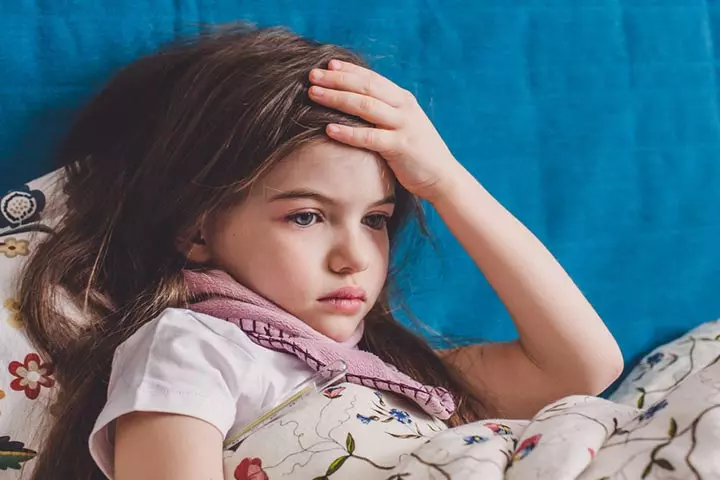
Mild infection would show flu-like symptoms, which makes it difficult to diagnose. These symptoms usually last for two to seven days and would appear after four to 10 days after the bite from an infected mosquito.
- High fever of 40℃/104℉.
- Severe headache
- Nausea, vomiting
- Swollen glands
- Muscle and joint pains
- Pain behind the eyes
- Skin rash
 Point to consider
Point to considerSymptoms of severe dengue fever
It is crucial that you watch out for the symptoms of severe dengue infection in children as these appear three to seven days after the first symptoms are seen, and are accompanied by a decrease in temperature, which may seem like the body temperature becoming normal.
Severe dengue can cause serious complications, such as fluid accumulation, respiratory distress, severe bleeding, and organ impairment. Its symptoms are (5):
- A decrease in temperature to below 38℃/100℉
- Severe abdominal pain
- Rapid breathing
- Continuous vomiting
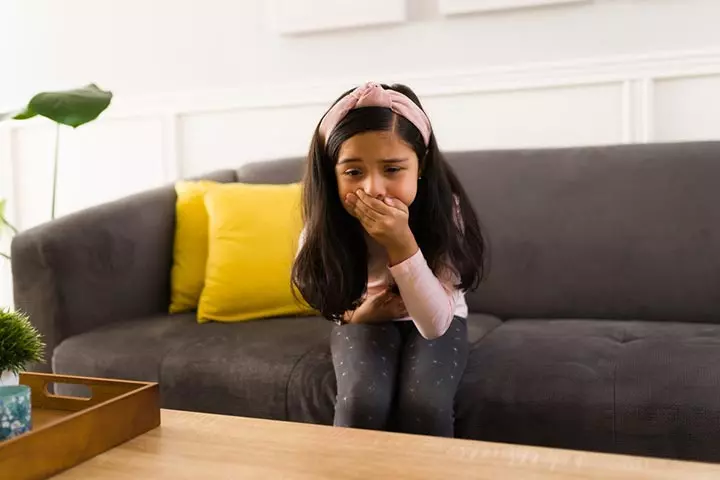
- Bleeding gums
- Blood in vomit
- Fatigue
- Restlessness
- Liver enlargement
- A drop in the platelet count
Doctors say that 24-48 hours after the onset of these symptoms is a crucial period, as it can turn out to be lethal. If you notice any of these symptoms, take your child to the hospital to prevent serious complications (5).
Stages Of Dengue Fever In Children
The symptoms of dengue fever usually start to appear after an incubation period of about five to seven days. The course of this fever can be divided into three notable phases. The CDC describes these phases as follows (7).
1. Febrile phase
In this phase, the fever usually lasts for about two to seven days and can be biphasic. Muscle pain, joint pain, bone pain, eye pain, skin rashes, purpura, bleeding gums, petechia, and a positive tourniquet test may be some of the accompanying symptoms.
2. Critical phase
This phase occurs when the fever is starting to go away and usually lasts for about 24-48 hours. During this time, clinical improvement is seen in the case of most patients, but those with a substantial level of plasma leakage might develop severe dengue within a few hours. This usually happens due to the increase in the vascular permeability.
3. Convalescent Phase
As the leakage of the plasma subsides, one enters the convalescent phase and an improvement in well-being can be observed as the body starts to reabsorb the intravenous fluids.
Diagnosis Of Dengue Fever In Children
You must carefully monitor your child for the above symptoms, as the symptoms of dengue are subtle in children. If your child is suffering from fever that lasts more than three to four days and is accompanied by skin rash, take your child to the pediatrician.
The doctor would conduct a physical examination of your child, enquire about the medical and travel history, laboratory tests such as blood tests will help to determine dengue infection.
Treatment For Dengue Fever In Children
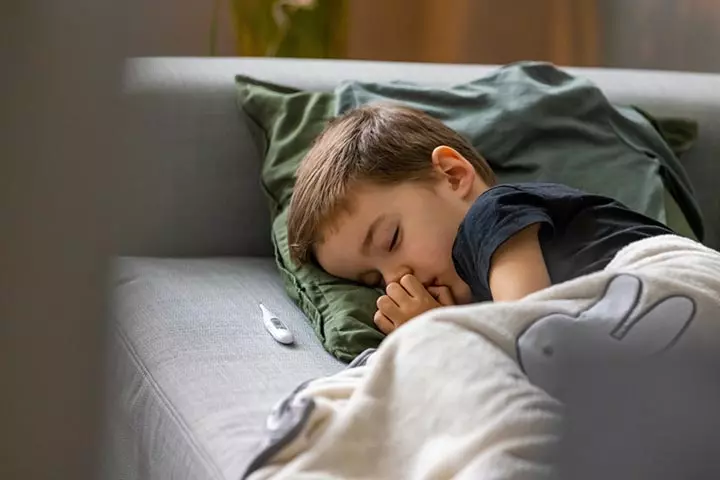
There is no specific medicine to treat dengue fever. However, with few home care tips, you can help relieve the symptoms in your child, until the body’s immunity fights off the virus by itself. Also, it is essential to take your child to a doctor before trying any home remedies, as severe cases of dengue can be lethal.
Your doctor is the best person to determine the stage of dengue infection and might suggest the following home care in case of mild dengue.
- Instruct your child to rest as much as possible.
- Give them plenty of fluids such as water and electrolytes to help them avoid dehydration.
- Avoid giving oily, spicy, and hard-to-digest food. Instead, give them high-protein foods, soft food, and liquids that are easily digestible. Coconut water, juices, soups, and lemon water can be given too.
- If your child is feeling feverish, control the body temperature by giving them tepid sponge baths and placing a wet washcloth on the forehead.
- If the fever is still not under control, you could give paracetamol, but do not give medications that contain aspirin or ibuprofen (check the labels).
- Carefully monitor your child to see if the symptoms are subsiding or getting worse.
Usually, these symptoms start to fade away within a week. But even as the fever goes away, you need to be extra careful for the next 24-48 hours as your child might develop the symptoms of severe dengue infection, also known as dengue shock. Children who feel unwell even after the fever goes away are likely to develop dengue shock (6).
If you notice that the existing symptoms are worsening or if any new complications have developed, such as a reduction in urine output, then you should immediately take your child to the emergency room as dengue shock could be lethal. In case of severe dengue infection, with careful medical attention, your child would then enter into the recovery phase, which can be identified when general well-being increases, appetite returns, and abdominal pain reduces(8).
 Things to know
Things to knowPrevention Of Dengue In Children
Since dengue is a mosquito-borne disease, carrier prevention is one of the preventive measures you should follow. Here is how you can protect your children from dengue.
- Keep your surroundings clean and do not let water logging in the drains as that is the ideal condition for mosquitoes to breed.
- Make sure your windows and doors have wire mesh proofing to prevent mosquitoes from entering the house.
- If your children are playing outdoors, make them wear long sleeves and try to cover most of the body parts.
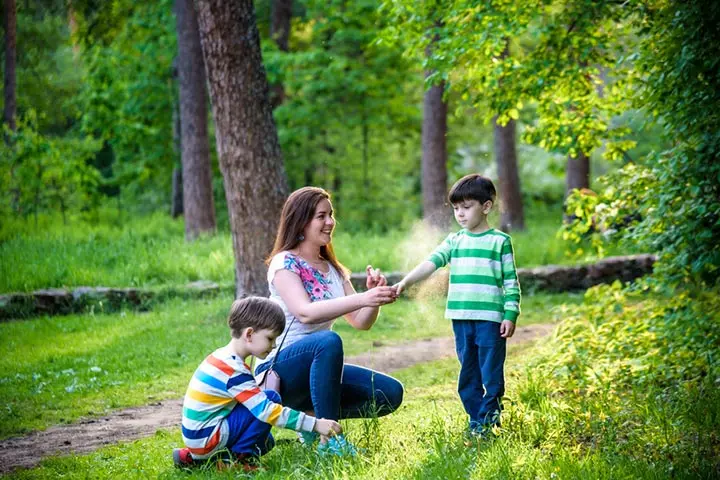
- You can also apply mosquito repellent creams on your children’s hands and legs to prevent mosquito bites.
 Quick tip
Quick tip- Discourage your children from playing outside during early hours of dawn or dusk as mosquito activity is high during that time.
- Cover the water storage units with lids and change the water every three-four days and clean the storage units thoroughly to prevent mosquito breeding.
- Spraying insecticides or larvicides on plants and areas surrounding your house can help in eradication and prevention of mosquito breeding.
- Use mosquito nets, mosquito coils, or sprays in your child’s bedroom.
- A variety of fish that feed on mosquito larvae could be bred in waterlogged places such as ponds, backyard ponds. Avoid consuming them.
- Have a proper disposable plan for solid wet waste, which could attract mosquitoes to breed.
- Give your children nutrient-rich foods, such as green leafy vegetables, pulses, and grains, to boost their immunological response.
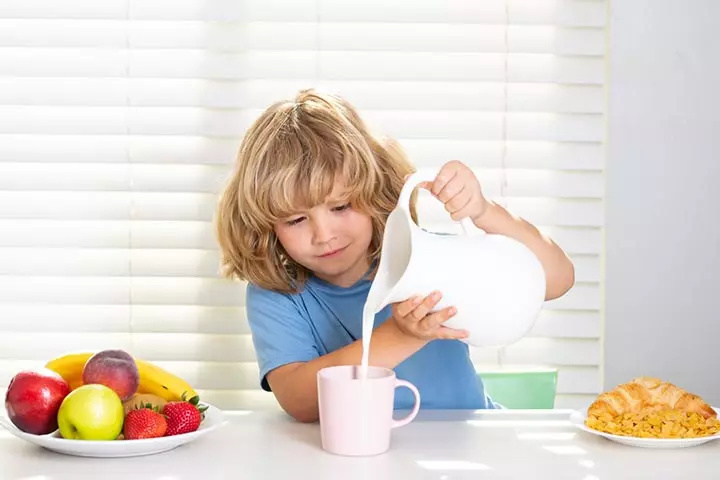
- Always keep the children away from family members who have dengue fever.
Frequently Asked Questions
1. Can a child drink milk in dengue?
As per WHO guidelines, children who have dengue fever must be given sufficient fluids, including juices and milk, as per their age requirement (9).
2. Why is dengue more common in children?
Dengue is more prevalent in children as they are more involved in outdoor play, making them prone to mosquito attacks (10).
3. Can dengue fever recur in children who have already had the disease?
A dengue fever is caused by one of the four dengue viruses; hence an individual could be infected multiple times in their life (11).
Dengue fever in children causes a spectrum of illnesses from mild flu-like symptoms to severe complications, including respiratory distress and bleeding. Therefore, it is advised that you consult the doctor immediately if you notice signs of dengue in your little one. Let them take adequate rest and give them nutritious food and enough rest to cope with the symptoms. Keeping the surroundings clean, using mosquito repellants, and keeping your child’s feet and arms covered can help prevent dengue.
Infographic: How To Identify Dengue Fever In Children?
Dengue fever is a mosquito-borne illness that can infect your child through a mosquito bite. Since no specific treatments exist for dengue, early recognition and management of symptoms are essential. Check the infographic below to learn about the possible signs of dengue fever to ensure early intervention in a child.
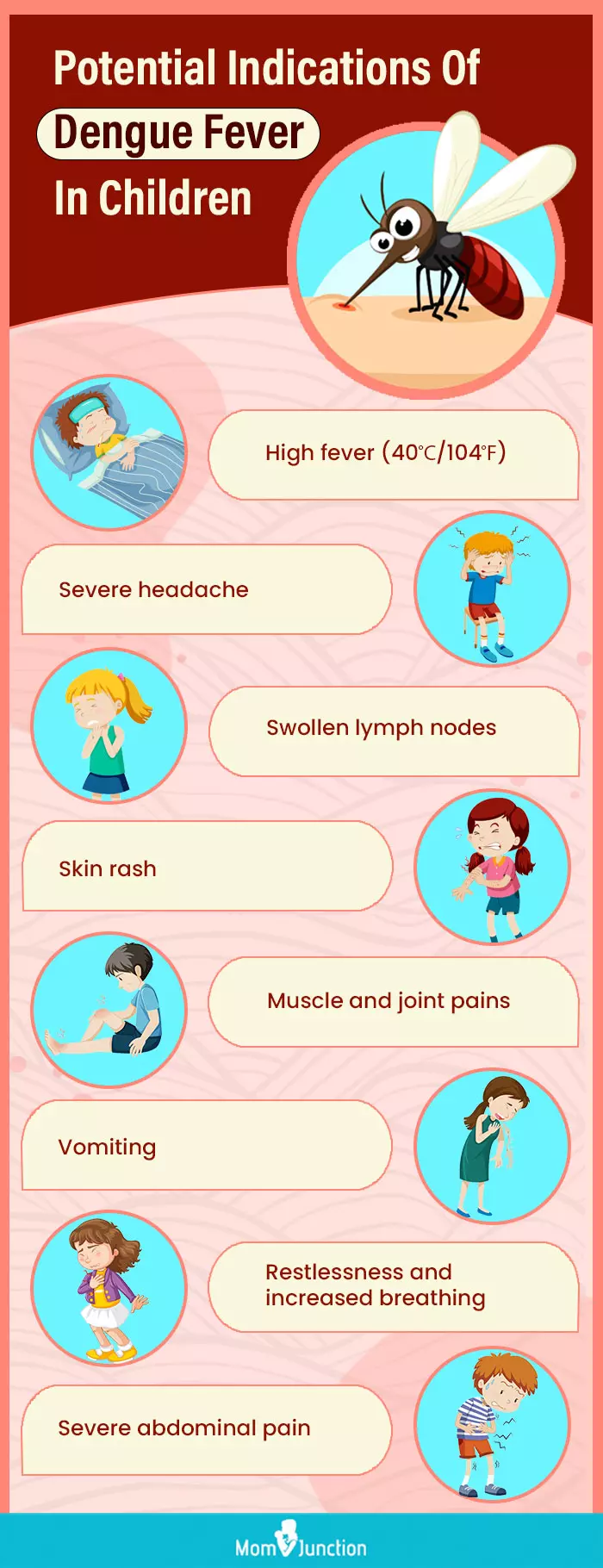
Illustration: Momjunction Design Team
Illustration: Dengue Fever In Children: Causes Signs Diagnosis & Treatment
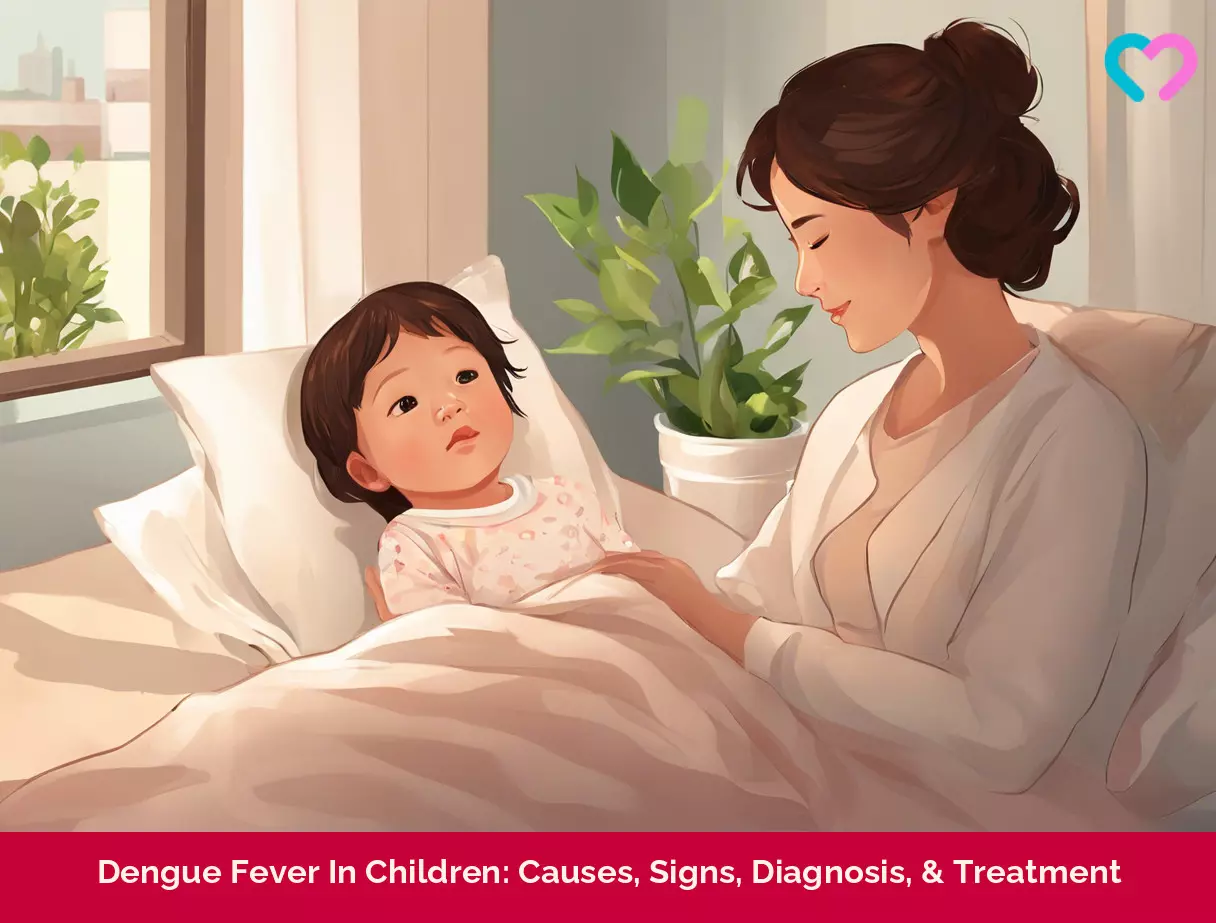
Image: Stable Diffusion/MomJunction Design Team
References
1. Dengue and severe dengue;World Health Organization
2. Winsley Rose et al.; Dengue illness in children; Current Medical Issues
3. How Dengue Spreads; Centers for Disease Control and Prevention
4. Dengue Fever; Nemours Kids Health
5. Dengue; Drugs for Neglected Diseases Initiative (DNDi)
6. Senaka Rajapakse;Dengue shock; Journal of Emergencies, Trauma, and Shock
7. Clinical Features of Dengue; Centers for Disease Control and Prevention
8. About a Dengue VaccineCenters for Disease Control and Prevention
9. Clinical Management And Delivery Of Clinical Services; National Library of Medicine
10. Manoj Kumar et al., Dengue in children and young adults, a cross-sectional study from the western part of Uttar Pradesh; Journal of Family Medicine and Primary Care (2020).
11. About Dengue: What You Need to Know; Centers for Disease Control and Prevention
Community Experiences
Join the conversation and become a part of our nurturing community! Share your stories, experiences, and insights to connect with fellow parents.
Read full bio of Dr. Richard Mario Lurshay
Read full bio of Dr Bisny T. Joseph
Read full bio of Swati Patwal
Read full bio of Anindita Ghatak





